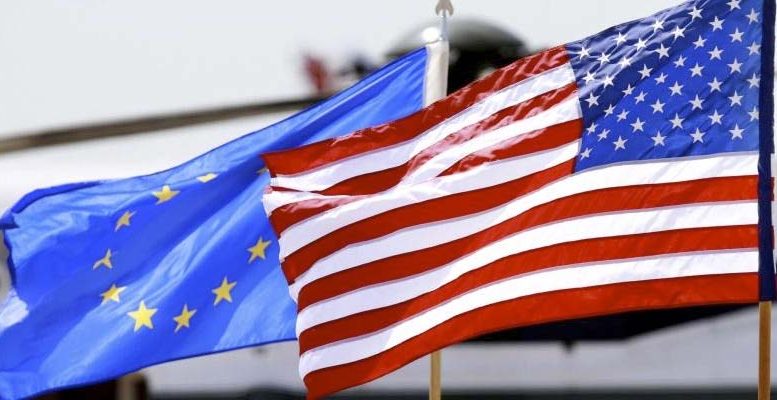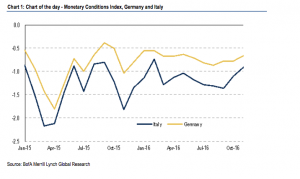BoAML | Council member Nowotny stated on 9 November after Trump’s win that “how the Fed reacts” will be “key”. Unfortunately, the ECB will meet before the FOMC, on 8 December. The ECB will need to rely on its own and the market’s expectations of the Fed.At least two polar scenarios are possible there. But, as we argue in our main piece whether we see more fiscal support or more protectionism in the US, higher real rates in the Euro area is the risk.
The ECB’s rational answer should be to maintain – at least – the level of monetary support it is already bringing. And, as shown in Chart 1, we already had some of that unwarranted tightening, particularly in Italy. The last thing the ECB needs given the very weak inflation outlook is an additional and unwarranted tightening of monetary conditions. With activity data resilient and monetary accommodation likely to remain, a key element is what happens with the degree of fiscal impulse. We argue in our weekly view that given the fragility of political dynamics everywhere in Europe, we do not think the European Commission will force its hand too much; the fiscal stance should not change much.
Don’t forget Brexit and the SNB
We argue in our UK article that the UK may be helped by a Trump presidency because military cooperation may be seen as more valuable across the Channel now. But populist uprising could embolden UK politicians to push even more for a quick & hard Brexit while EU states may respond to populism by being hard on the UK. We expect a hard Brexit, and think the risk of it is under-appreciated.
Finally, and talking about pressure, we also look at Switzerland. Our call remains that the SNB will intervene to offset FX pressure. But higher uncertainty increases risks of a Dec rate cut in our view. Meanwhile, Switzerland needs to draft a law for “light” limits on immigration from Feb-17. This could have implications for EU relations.






